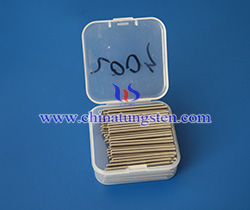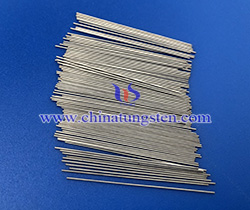WRe Needles
Most integrated circuits are tested using cantilever probe cards and epoxy probe cards. Contact resistance, balanced contact force and card life are directly dependent on probe material and shape. Therefore, a critical design step for any card is the specification of the probes.
In a blade probe card, probes are soldered to metal or ceramic blades, which are mounted to a printed wiring board (PWB) to match the contact pad pattern of the device under test. For epoxy probe cards, the probes are arranged in contact pads, embedded in an epoxy ring, and the oven-hardened assembly is glued and soldered to the PWB.


The use of tungsten-rhenium needles (WRe needles) in probe card construction has increased significantly over the past two years. Tungsten probes have traditionally been used for a number of reasons - excellent stiffness, hardness and wear properties.
The growing acceptance of tungsten-rhenium as an alternative probe material is largely driven by the positive user experience. Both pure tungsten and tungsten-rhenium materials can effectively rub the contact plate. But due to their higher hardness, tungsten-rhenium probes exhibit superior resistance to tip contamination and better overall service life.
If there is any interest in tungsten products, please feel free to contact us through the following methods.
Email: sales@chinatungsten.com
Tel.: +86 592 512 9696/+86 592 512 9595
More info>>
